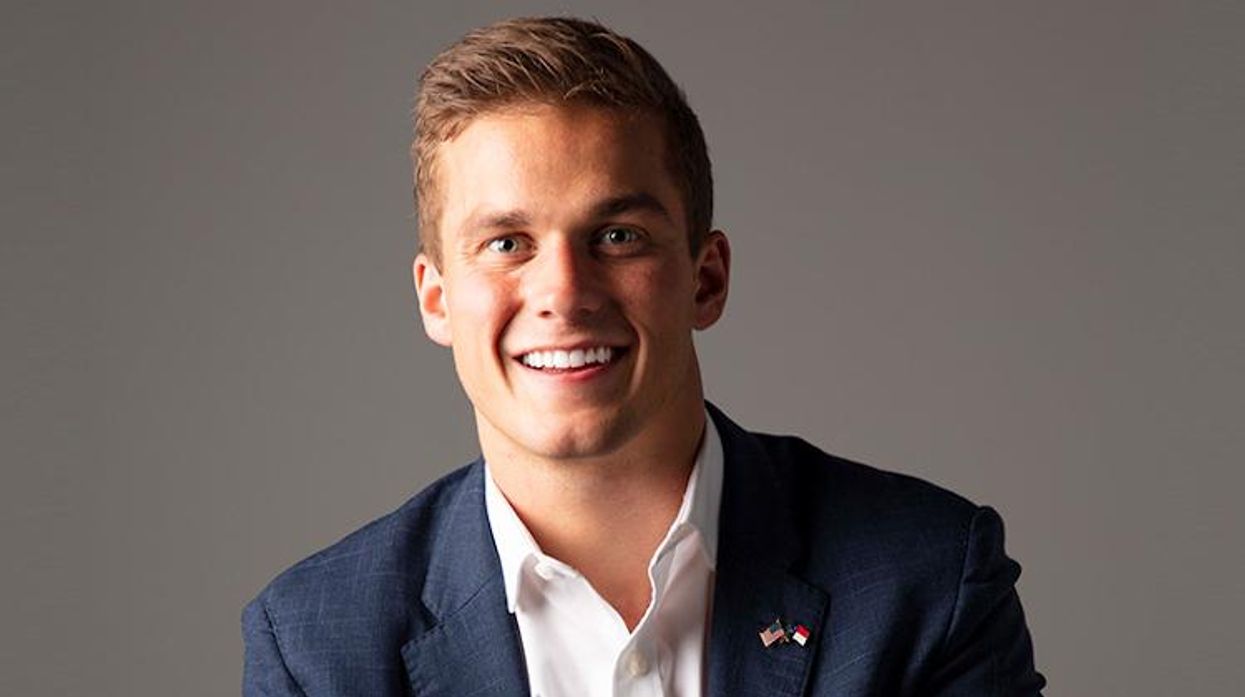As an Indigenous queer man who grew up in rural North Carolina, I've spent my whole life navigating the complexities of how society defines masculinity. From the moment men are born, we are told we have to be strong, and always right. That we should be the head of our households and that women should be submissive. There is no room for men to question our belief systems, our motivations, or to appear uncertain.
These past four years under the Trump administration have laid bare how pervasive and destructive patriarchy is to our democracy and our people. While I'm relieved that new leadership is imminent under Joe Biden, we must do better. Seventy-one million people voted to reelect a racist, misogynistic man who embodies toxic masculinity, proving that we have a long way to go to repair the damage caused by centuries of patriarchy and colonialism. In order to build a world we can all be proud of, we as men need to turn inwards, and work on deep self reflection and community healing.
Throughout Trump's reign, we've seen toxic masculinity devolve into the frightening activation of white supremacists, emboldened by Trump's rhetoric and actions. While white supremacy certainly transcends gender, it's important to note that men have perpetuated much of the violence, as we saw in Charlottesville a few years ago. The images of male neo-Nazis with torches will forever haunt our nation's consciousness. And just a few short weeks ago, Trump told a known white supremacist group -- the "Proud Boys," to "stand back and stand by."
We've seen toxic masculinity put our entire country at risk during the COVID-19 pandemic. Twenty percent of men have reported never wearing a mask outside their home compared to just 8 percent of women, and while 54 percent of women reported always wearing a mask outside of their homes, only 34 percent of men claimed the same.
This enormous gender gap around an act that is so simple and potentially life-saving is alarming -- and has been perpetuated by Trump and his allies, who have touted mask-wearing as weak and paranoid since day one. While refusing to take precautions against a deadly virus threatens the health of everyone, COVID-19 has killed more men than women in every single state.
Underneath all the rhetoric against mask-wearing is the implication that protecting ourselves is somehow "unmanly" or gay. The undercurrent of homophobia and transphobia still permeating our national dialogue is harmful -- and often deadly -- to queer people, especially queer people of color. But it also hurts straight men, putting up obstacles to what could be deep, caring friendships from an early age, and making so many feel isolated and misunderstood. In that way, many men are wearing a mask of a different kind -- one that prevents us from being vulnerable, from connecting with each other, from seeing the ways that we're deeply wounded and in need of healing.
This election has shown us that the harm of toxic masculinity isn't going away. Madison Cawthorn won his Congressional election in my home state of North Carolina after a campaign centered on racism and misogyny, slinging racist attacks at a journalist and calling his Democratic opponent a "simp" for months. Like Trump, Cawthorn also faces a number of sexual misconduct allegations.
The toxic masculinity that is so ingrained in this country's history and culture is what allowed people like Trump to rise to power, and more will come. Like it or not, the United States still holds dear unabashed toxic masculinity.
Much of the post-election analysis is already focusing on the fact that support of Trump by white women and Black and Latinx men increased compared to 2016. These are facts we should indeed interrogate. But we can't lose sight of the fact that yet again, it was white men who almost put Trump back in office.
Men need to put in real work to hold ourselves and each other accountable. This starts by questioning our belief system around who deserves power and how we treat others. It requires listening, decentering ourselves, and a willingness to give up any comforts that systems have afforded us as men.
It means drawing from Indigenous wisdom that teaches mutual respect between all gender identities, and sees all people as playing a critical role in the life and survival of tribal communities. Many Indigenous communities are matriarchal, with women holding more power and influence than men in leadership roles.
We could have a world that's driven by compassion, connection, and reparation of past harms. We could have a world where no one is left out in the cold, where queer and trans people are kept safe and allowed to thrive. Black and Indigenous women have been driving this country forward for hundreds of years, in and outside of campaign cycles. We cannot continue putting the burden on them. It's time for men to put in the work to heal ourselves and our broken relationships to each other, and to society at large.
Edgar Villanueva is a queer and Indigenous racial justice activist, author, and speaker.















Charlie Kirk DID say stoning gay people was the 'perfect law' — and these other heinous quotes
These are some of his worst comments about LGBTQ+ people made by Charlie Kirk.